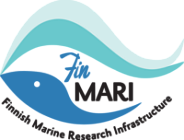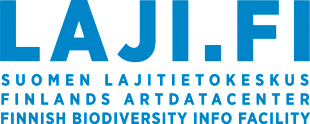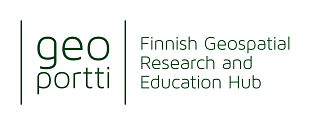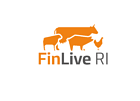
National research infrastructures
On this page
Luke has been involved in research infrastructures that have been approved for the Academy of Finland's The Roadmap for Finnish research infrastructures, as well as research infrastructures that have received funding outside the Roadmap in the Academy of Finland's FIRI (Finnish Research Infrastructures) funding calls.
Most of the funding is reserved for Roadmap research infrastructures. The roadmap calls are based on the Academy of Finland's Strategy for National Research Infrastructures in Finland 2020–2030.
FINMARI – Finnish Marine Research Infrastructure
FINMARI, Finland's distributed infrastructure for marine research, brings together an integrated whole for the national roadmap, combining the complementary resources of four research institutes (Finnish Environment Institute, Finnish Meteorological Institute, Geological Survey, Natural Resources Institute Finland) and three major universities (University of Helsinki, University of Turku, Åbo Akademi) involved in Baltic Sea research.
FINMARI consists of field stations, research vessels, experimental laboratories, merchant ship flow stations, profiling buoys and other autonomous measurement platforms, and the new generation automated Utö atmospheric and oceanographic research station.
FINMARI is an observational and experimental research package based on the integration of the partners' specific competences in a joint development plan. FINMARI aims to provide a sustainable basis for understanding the causes of the multi-scale temporal and spatial variability of marine ecosystems as a basis for marine conservation.
The overall target of FINMARI consortium is to facilitate the synergies among the specific, non-overlapping research niches of the partner institutions, to strengthen their interaction, and to create and maintain joint open access procedures for Finnish and international scientists across the infrastructures for marine research.

INAR RI – Integrated Atmospheric and Earth System Science Research Infrastructure
Integrated Atmospheric and Earth System Research Infrastructure (INAR RI) is an internationally leading, multidisciplinary and comprehensive environmental RI. It provides integrated, continuous data about atmosphere, ecosphere and their interaction for researchers and other end-users to answer challenges the societies meet especially regarding climate change, biodiversity and air quality.
INAR RI maintains and develops observation stations, experimental laboratories and field sites, modeling tools, and open data services. INAR RI hosts the Finnish activities related to several European level ESFRI-infrastructures: ICOS focusing on greenhouse gases, ACTRIS on aerosols and clouds, eLTER on ecosystem monitoring and AnaEE on ecosystem experiments. INAR RI has been selected for the Academy of Finland's roadmap of national research infrastructures.


FinBIF – Finnish Biodiversity Information Facility
The Finnish Biodiversity Information Facility (FinBIF) is a digital, web-based information management infrastructure and service package. It has accelerated the digitisation, collection and open distribution of species information to support research, governance, education and business. FinBIF is an integrated e-infrastructure that combines three types of species data (collection specimens, species observations and DNA), links the data to modern research methods to enable the rapid production of new information, and brings them all together as open data.
FinBIF will enable research breakthroughs to be achieved at a pace that matches the urgency of biodiversity conservation and sustainable use. At the same time, FinBIF supports public administrations in the effective management of biodiversity. FinBIF is maintained by the Finnish Natural History Museum Luomus together with partners. Luke was involved in the second cycle of the development of the FinBIF in 2019–2022. FinBIF has been selected for the roadmap of national research infrastructures.

Geoportti RI
Spatial Data Research Infrastructure Geoportti is a service coordinated by the FGI Geospatial Research Institute. The Geoportti website was launched in spring 2019 as a result of the oGIIR project as an open portal for all researchers, students and teachers using spatial data.
The Geoportti.fi website provides users with geospatial data sets, power computing services and a knowledge network. A unique virtual, open-access platform consisting of spatial data sets, organisational service interfaces, a national spatial data infrastructure and a functioning network of researchers.
Previously known as oGIIR – Open Geospatial Information Infrastructure for Research, the site was launched in 2017 and its development was funded by the Academy of Finland for the 2016-2019 funding period. Luke was part of the oGIIR consortium from 2017 to 2019, when the consortium received funding for the research infrastructure on the national roadmap.
Geoportti RI 2.0 is an ongoing project that aims to build the next generation of open spatial data infrastructure for research.

FOODNUTRI – Climate Smart Food and Nutritition Research Infrastructure
The FOODNUTRI research infrastructure will contribute to the implementation of the Sustainable Development Strategy (FOOD 2030), taking into account the Finnish Government's vision: “In 2030, Finnish consumers will eat sustainably and ethically produced domestic, tasty, healthy and safe food. Consumers have the ability and opportunity to make informed choices."
FOODNUTRI produces innovative solutions using a wide range of domestic raw materials and new processing and packaging technologies, and provides information on the composition, structure and safety of food and its raw materials, the physiological role of food, consumer attitudes, food consumption, nutrient intake and sustainability of food choices.
FOODNUTRI serves researchers, business, public authorities, health professionals, farmers and other stakeholders. FOODNUTRI has been granted funding for research infrastructures outside the national roadmap for the period 2021–2024.
FinLive RI – Finnish Livestock Research Infrastructure
FinLive RI is a multidisciplinary consortium of livestock research, bringing together the main livestock research platforms in Finland. It provides solutions for both climate change mitigation and adaptation. Feeding strategies based on domestic raw materials are developed to reduce emissions.
Animal welfare is ensured by monitoring animal behaviour and the conditions that influence it. Animal health research will prevent disease and promote shared health between humans, animals and the environment.
The knowledge generated helps producers, businesses and policy makers to make sustainable and profitable decisions. It also helps consumers who want responsibly produced food. FinLive RI is coordinated by Luke and involves the research platforms of the Faculties of Agriculture and Veterinary Medicine of the University of Helsinki. FinLive RI received funding from the Academy of Finland's Research Infrastructures as Platforms for Cooperation in 2020–2021.



FINTIMS – Finnish Thermal Ionisation Mass Spectrometer And Metal-Free Cleanroom Facility
Stable and radiogenic heavy isotopes (e.g., Sr, Nd, Pb, U) allow fingerprinting human, geological and environmental materials (e.g., archaeological finds, food, fuels, plastics, precious metals, waste, water) and their timeline ranging from several millions to tens of thousands of years and to the Anthropocene. The elemental cycles within solid Earth, hydrosphere, biosphere and Stable and radiogenic heavy isotopes (e.g., Sr, Nd, Pb, U) allow fingerprinting human, geological and environmental materials (e.g., archaeological finds, food, fuels, plastics, precious metals, waste, water) and their timeline ranging from several millions to tens of thousands of years and to Anthropocene. The elemental cycles within solid Earth, hydrosphere, biosphere and
In line with a transition towards a green and sustainable future, carbon neutrality and boosting the local and regional research environment FINTIMS targets scientific needs required for the sustainable use of water and marine resources and pollution control. It also reduces the need of researchers to travel and enhances a sustainable research and teaching environment in that it educates Finnish researchers in state-of-the-art crucial analytical knowledge. The use of a TIMS also supports a transition towards a green future in that the periphery required (gas, cooling, electricity) is less in volume and consumption compared to a modern MC-ICP-MS. An integral component of FINTIMS is an ultraclean, metal-free ultraclean room facility unique in Finland and essential in the development of new isotope analytical techniques making best use of the low-concentration abilities of modern mass spectrometers.
The Geological Survey of Finland (GTK) coordinates the activities, with the participation of Luke, the University of Helsinki and the Finnish Food Authority. FINTIMS has received funding from the Academy of Finland for Local Research Infrastructures for the period 2023-2025. LUOMUS, the Finnish Food Authority, Luke and UTU are committed to FINTIMS by a one-time financial contribution to the clean-room and instrument purchase.
Tulanet & RIs
Tulanet is a platform for cooperation between government research institutes, which actively collaborates from senior management to experts and with stakeholders. Tulanet also acts as a common voice for research institutions in the development of research policies and systems. This cooperation strengthens the impact, productivity and international competitiveness of research.
Tulanet promotes flexible collaboration and efficient sharing of resources in the management and use of infrastructures and data sets. The cooperation will aim at a more efficient use of research infrastructures and better research and innovation.

